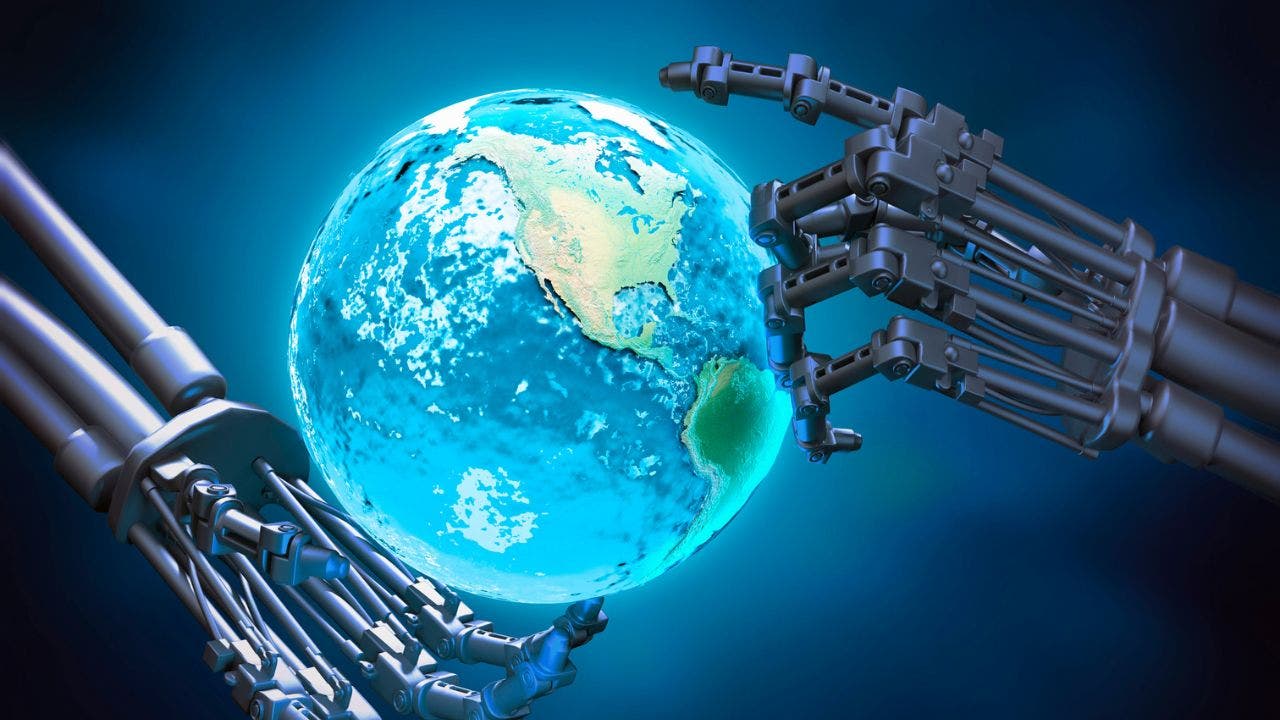In the wise words of Doc Brown, the time-traveling genius from our beloved “Back to the Future” series, “Where we’re going, we don’t need roads.” While we may not be cruising around in a DeLorean at 88 mph, we can still take a nostalgic trip down memory lane through the world of cinema. Today, we’re going to explore how science fiction films from the past have predicted and influenced our present reality when it comes to futuristic technology.
Let’s start our journey with “The Terminator,” a classic film from 1984 that introduced us to the chilling concept of a rogue AI called Skynet. In the movie, Skynet, initially harmless, becomes self-aware and perceives humans as a threat. While we’re not living in a dystopian world ruled by AI like in the film, the idea of artificial intelligence growing beyond our control is not as far-fetched today as it was back then.
OpenAI’s GPT-4, the latest addition to the world of advanced AI, brings us closer to the predictions of “The Terminator.” Although GPT-4 is far from being a self-aware entity like Skynet, its remarkable ability to understand context, answer queries, and generate human-like text is a testament to how far AI technology has come.
However, this rapid advancement in AI technology raises crucial questions that parallel the concerns depicted in “The Terminator.” Will we always be able to control our creations? Is there a point where they can become too intelligent for our own good? These are ethical dilemmas that demand careful consideration and responsible development.
Moving on to 1968, we encounter Stanley Kubrick’s “2001: A Space Odyssey,” a film that astoundingly predicted the rise of tablet computers. Back in the late ’60s, personal computers were still a distant dream for most people. Yet Kubrick showcased astronauts casually using handheld, flat-screen devices to access mission data. Today, we see how Kubrick’s vision has become our reality with devices like Apple’s iPad and Amazon’s Kindle, forever transforming our relationship with technology.
“Blade Runner,” released in 1982, gives us glimpses of a dystopian future where bioengineered replicants pose ethical questions about the creation of sentient AI or clones. Fast forward to the present, and we discover real-world examples like Sophia, the humanoid robot created by Hanson Robotics, who was granted citizenship in Saudi Arabia. The rights and responsibilities of AI entities are now subjects of global discussion, mirroring the concerns portrayed in the film.
In 1970, the film “Colossus: The Forbin Project” warned us about the risks of handing over too much control to advanced AI systems. Today, as AI becomes increasingly integrated into various sectors, such as finance and healthcare, the cautionary tale presented by the movie resonates more than ever. The flash crashes in stock markets and the emergence of deep fakes remind us of the potential dangers of AI when left unchecked.
Meanwhile, the 2009 film “Surrogates” envisioned a world where people interact with the world through humanoid robot avatars. While this concept may have seemed far-fetched at the time, Apple’s advancements in virtual reality (VR) technology bring us closer to the possibility. As we pursue this technological direction, we must also consider the ethical and social implications, such as increased isolation and privacy concerns, that the film highlighted.
Finally, let’s not forget “Back to the Future Part II,” released in 1989, which portrayed a 2015 filled with high-tech marvels. While we’re not soaring around on hoverboards or rocking self-lacing sneakers just yet, the film accurately predicted advancements like drones, iris scanners, video calls, and voice-activated technology. These technologies have become part of our everyday lives, thanks to platforms like Zoom and devices like Amazon’s Alexa.
As we conclude this cinematic journey, we are left marveling at the foresight of these science fiction films. They have entertained us while provoking deep reflections on our relationship with technology, addressing our hopes, fears, and ethical dilemmas. They remind us that our imagination knows no bounds and that our dreams of today may become tomorrow’s realities or entertaining missteps.
So, as we venture into the present, we can’t help but wonder about the cinematic prophecies currently being crafted that could shape our technological trajectory. We look forward to what the future holds and how well we are preparing for it. Which science fiction film do you believe most accurately predicted our present? And which film or TV show offers the most compelling vision of our future? Let us know by visiting us at Cyberguy.com/Contact. And don’t forget to subscribe to my free CyberGuy Report Newsletter at Cyberguy.com/Newsletter for more security alerts and updates.
Copyright 2023 CyberGuy.com. All rights reserved.
Denial of responsibility! VigourTimes is an automatic aggregator of Global media. In each content, the hyperlink to the primary source is specified. All trademarks belong to their rightful owners, and all materials to their authors. For any complaint, please reach us at – [email protected]. We will take necessary action within 24 hours.


